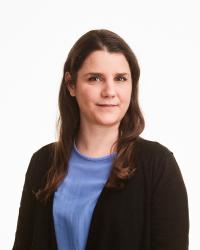Hanken receives EU-funding to promote circular economy in the humanitarian sector

WORM, which stands for Waste in Humanitarian Operations: Reduction and Minimisation, is a two-year project, which starts in January 2024. Hanken School of Economics is the consortium leader of the project.
The research project focuses on two selected settings: field hospital deployments, and humanitarian livelihood programmes with a waste picking component. Across these settings the project is looking at, for instance, the integration of bio-based technological innovation solutions in the humanitarian context, using procurement as a gatekeeper for waste avoidance and a gateway to integrate innovative solutions, and improvements in waste management.
“Some greening efforts come with potentially unintended consequences. WORM addresses a few of these trade-offs and sheds light on the interrelations of various objectives, such as the need for biodegradability of materials versus their durability in preparedness, biodegradability versus hygiene requirements in medical settings and how an increased use of bio-sourced materials affects food security”, Gyöngyi Kovács, Erkko professor in humanitarian logistics at Hanken’s HUMLOG Institute Opens in new window , explains.
WORM brings together medical humanitarian organisations and humanitarian organisations with livelihood programmes, procurement service providers, logistics service providers, waste management service providers and academic partners. The project includes partners from low and middle-income countries, for example Kenya and Vietnam, since humanitarian operations are often implemented in these contexts.
“There are already many greening endeavours of humanitarian operations ongoing. WORM seeks to co-ordinate efforts across humanitarian organisations in this area”, Kovács says.
The WORM project is funded by Horizon Europe, which is the EU’s key funding programme for research and innovation. The entire grant is approximately 1 500 000 euros.
Call and project number
Project: 101135392 — WORM
Call: HORIZON-CL6-2023-CIRCBIO-01-06


